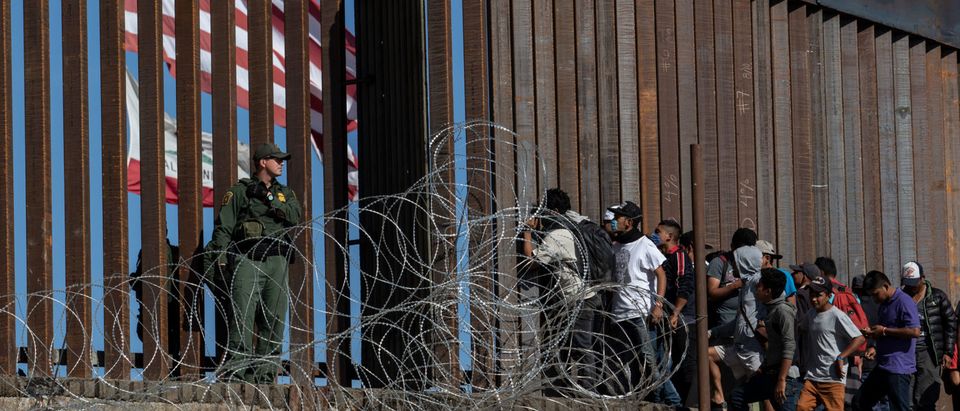Since the chaos along our southern border peaked last May, there has been a precipitous decline in the flow of Central American economic migrants posing as asylum seekers entering the country illegally. Construction of additional border fencing and stepped up enforcement by Mexico at its own southern border have certainly played a significant role in alleviating the crisis, but it is another program implemented by the Trump administration that has had the greatest impact.
The Migrant Protection Protocols (MPP), first rolled out in January 2019, require migrants who want to seek asylum in the United States to wait in Mexico pending their immigration court hearing in the U.S. The system is so effective at discouraging fraudulent asylum claims that Americans and legitimate asylum seekers have benefitted because the influx of illegal immigrants has dropped considerably. And given its success, there is the opportunity for it to expand in the upcoming year.
These protocols aim to expedite the asylum process for bona fide asylum-seekers and to reduce overall border apprehensions by deterring illegal aliens falsely claiming asylum from making the dangerous trek northward to the United States.
The administration crafted this policy after a historic flow of migrants in the first half of 2019 along the southern border. Our nation’s asylum loopholes forced U.S. Customs and Border Protection (CBP) to release all adults arriving with children into the U.S. These aliens often disappeared into the interior of the country, never to be seen again. This loophole resulted in nearly 144,000 migrant apprehensions in May 2019 alone, which was the largest monthly total in more than a decade.
In a little over a year, the MPPs have shown tremendous promise. In fact, roughly 60,000 migrants, mostly from the Northern triangle countries of Guatemala, El Salvador, and Honduras, have been returned to Mexico. Meanwhile, asylum-seekers with legitimate claims benefit from a faster asylum process and better support services.
The program works so well at deterring bogus asylum claimants that the administration is starting to send back fewer migrants to Mexico. In January, the U.S. returned roughly 2,000 migrants to the country, a major decrease from the 12,000 sent back in August. Economic migrants are realizing that entering specious asylum claims will no longer result in automatic entry into the United States.
The administration recently added Brazilian migrants to the list of nationalities that are subject to the program. Immigration officials apprehended at least 17,000 migrants from Brazil in FY 2019. This figure is a dramatic increase from the roughly 1,600 apprehended in FY 2018, a clear indication that those who believe that the door to asylum fraud is still open to them will seek to take full advantage.
The addition of Brazilians and the downward trend of migrants returned to Mexico through the program reveal that the MPPs are operating effectively. The increased likelihood that bogus asylum seekers will not be afforded the opportunity to enter the United States and disappear is helping with the decline of border apprehensions for the last eight months and is also improving adjudication times in the overwhelmed immigration courts.
The Department of Homeland Security (DHS) has the opportunity to expand the program more. As of today, the program is largely only applied to Spanish and Portuguese speakers from the Northern Triangle countries and Brazil. Although these countries represent the vast majority of asylum seekers at the southern border, the U.S. would see even greater results if the MPPs were applied to even more of the many asylum seekers who enter illegally, or attempt to enter illegally, via the border with Mexico.
Deterrence is the most effective way to secure our borders and prevent asylum fraud. The MPPs have proven to do just that. They have cut the flow of economic migrants and improved the asylum process for bona fide migrants. The program also saves lives as it deters people from making the dangerous trek to the U.S.-Mexico border. Migrants often face rape, assault, and other crimes from human smugglers and cartel members.
An effective border wall and continued Mexican cooperation are essential to address the nation’s border crisis. But the Migrant Protection Protocols, which send a clear message that we will not allow our political asylum system to be abused, are truly making the largest impact.
Matthew Tragesser is a communications specialist for the Federation for American Immigration Reform (FAIR).


